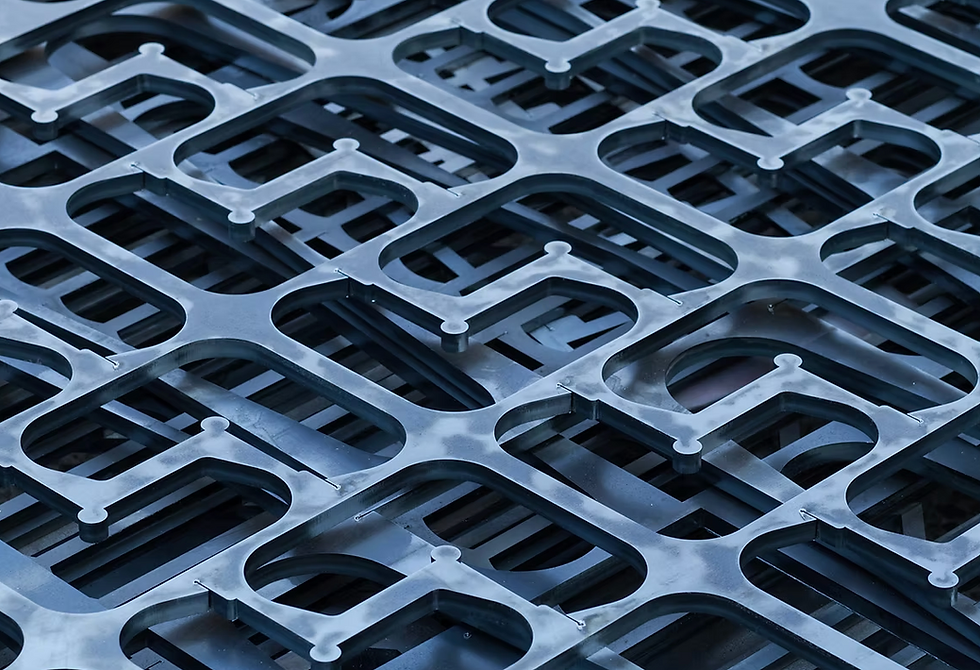Revolutionising Industrial Heat: Caldera’s Clean Heat Solution
- Eric Lewis
- Jul 2, 2024
- 3 min read
In the global quest for sustainable energy, industrial heat presents a formidable challenge and an exciting opportunity. Half of all the energy consumed worldwide is used for heat, and a significant portion of this is industrial heat. Addressing this sector's needs is pivotal for reducing our carbon footprint. Enter Caldera, a company poised to revolutionise how industries generate and use heat with their innovative clean heat solutions.

The Industrial Heat Conundrum
Industrial heat is essential for numerous processes, from food processing to paper making, but decarbonising this sector is no small feat. While some industries require extreme temperatures, such as steelmaking, where hydrogen may be the only viable clean energy source, a substantial portion of industrial heat needs fall within a more manageable range. Notably, one-third of all industrial heat is below 200°C, a range that is notoriously tricky for traditional heat pumps but ideal for Caldera’s groundbreaking technology.
Leveraging Renewable Energy
James McNaughton, CEO of Caldera, underscores a critical shift in the energy landscape: in many sunny and windy parts of the world, renewable energy is now the cheapest source of power. This shift is not just about electricity; it's about energy in all its forms. However, integrating renewable energy into the grid comes with its own set of challenges. Grid congestion is a significant barrier, often causing long delays in connecting new solar or wind projects.
Caldera’s solution elegantly sidesteps these issues. By utilizing behind-the-meter renewables—solar panels or wind turbines installed directly at industrial sites—Caldera’s system can store excess energy as heat during off-peak times and provide it on demand, ensuring a seamless and efficient energy supply without overloading the grid.
Innovative Heat Storage
At the heart of Caldera’s technology is their innovative heat storage material, a blend of aluminum and rock. This unique combination provides exceptional thermal conductivity and structural integrity, creating storage blocks that are nearly indestructible. Each block, weighing about two tonnes, is designed to store heat efficiently and safely at temperatures up to 500°C.
These storage blocks are housed within a vacuum-insulated container, minimising heat loss and maximising efficiency. The system is modular, allowing for easy scaling to meet the specific needs of different industrial sites. Factories can integrate additional heat cells and substations as needed, creating a flexible and scalable solution.
Safety and Practicality
Safety is paramount in industrial settings, and Caldera’s system is designed with this in mind. Traditional steam boilers, while effective, carry significant risks, including the potential for catastrophic explosions. Caldera’s solution eliminates these risks by using minimal water and avoiding combustion entirely. The result is a system that can be operated safely without the need for specialised staff, reducing operational costs and complexities.
Real-World Applications and Scalability
Caldera is already making strides with their technology. They’ve completed their first 2 MW system and are in talks with multiple industrial sites to deploy their solution. Their technology is particularly well-suited for industries with continuous heat needs, such as food processing, brewing, and paper making, where the consistent demand for steam makes the integration of renewable energy both practical and beneficial.
One compelling aspect of Caldera’s approach is its ability to maximise the use of on-site renewable energy. By prioritising electrical processes and storing any surplus as heat, Caldera ensures that no energy is wasted. This method not only improves efficiency but also helps industries overcome the limitations of their grid connections, enabling them to achieve greater energy independence and sustainability.
A Vision for the Future
James McNaughton envisions a future where industrial sites are not just energy consumers but active participants in the renewable energy ecosystem. By integrating Caldera’s clean heat solutions, factories can significantly reduce their carbon emissions and contribute to a more sustainable energy landscape.
As industries worldwide grapple with the urgent need to decarbonise, Caldera’s innovative approach offers a promising path forward. With a focus on efficiency, safety, and scalability, Caldera is not just addressing the challenges of industrial heat; they are paving the way for a cleaner, greener future.
For industries looking to embrace renewable energy and reduce their carbon footprint, Caldera’s technology presents an exciting opportunity to lead the way in the clean heat revolution.



